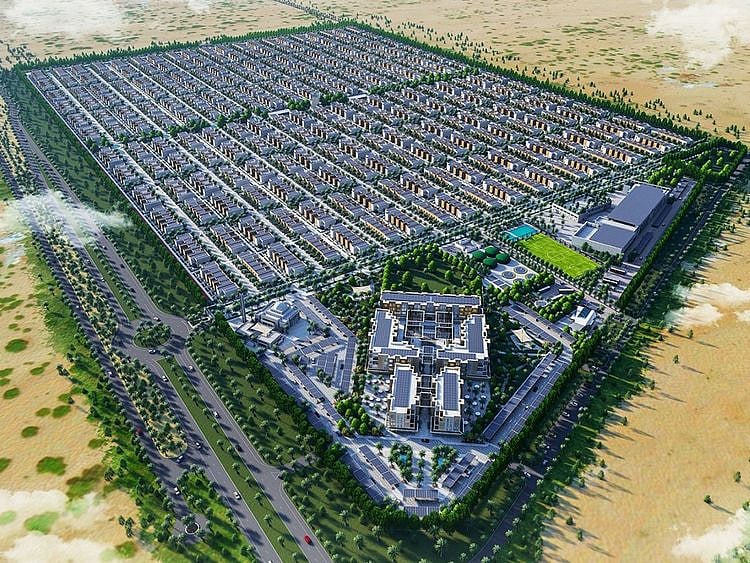More than half the world’s population, some 4.4 billion people live in urban areas. By mid-century, this number is predicted to rise to nearly 7 in 10 people worldwide. It’s clear that cities are at the heart of the climate crisis. Moreover, urban populations are the most vulnerable to climate disasters such as flooding, wildfires, storms and heatwaves.
According to the international environmental initiative Climate Trace’s annual data released at COP29 in Baku, Azerbaijan, cities in Asia and the United States emit the most greenhouse gases feeding climate change. Urban areas account for 17 billion tonnes of carbon dioxide equivalent (CO2e), or more than 25% of global emissions.
While climate change directly impacts socioeconomic stability, cities are also under pressure from desertification and drought. A World Bank report states that climate-induced migration could displace more than 200 million people by 2050.
Also Read
Gulf's trade resilience in a volatile global landscapeZayed Sustainability Prize finalists for 2025 announcedMasdar City: Supporting the falcon economyEnvironmental degradation also significantly impacts public health, with increased pollution raising the rates of respiratory diseases, heart disease and infections. Some 7 million people die prematurely every year from causes related to air pollution.
The recent smog in Delhi caused schools and offices to be shut, while increasing hospital admissions from affected residents. In parts of the Middle East and North Africa, dust and sandstorms from land degradation increase respiratory diseases such as asthma and bronchitis.
Global warming is the biggest existential challenge facing humanity today. We must act now, as delayed efforts to reduce emissions will have significant consequences on rising sea levels, food security, and public health. In this context, there is an urgent need to rethink how we design, build, and sustain our urban environments. Building sustainable communities must become a cornerstone of our efforts to achieve net-zero goals and ensure a liveable future for all.
Role of sustainable communities
Sustainable communities can solve some of the big challenges facing cities today. By integrating renewable energy, resource-efficient infrastructure, and the principles of a circular economy, these communities can significantly reduce their environmental impact while improving the quality of life for residents. They are designed to be resilient, adaptable, and inclusive, offering a model for urban development aligned with national sustainability goals.
Aligned with this mission, the UAE has seen several sustainable communities being developed across the country, including Sharjah Sustainable City. This is the first sustainable master-planned community developed in Sharjah, in partnership with Sharjah Investment and Development Authority (Shurooq) and Diamond Developers. Home to over 600 households from different countries, it aims to meet the highest social, environmental, and economic sustainability standards.
From energy-efficient housing and solar-powered infrastructure to advanced waste recycling systems and green mobility solutions, every aspect of Sharjah Sustainable City has been designed to minimise its ecological footprint, while fostering a sense of environmental stewardship and shared purpose among residents.
Building sustainable communities is crucial to address climate change, as well as for promoting public health, food security, resilience and economic development. By prioritising sustainability in our homes, businesses, and communities, we can play an important role in building a more sustainable and resilient future for all.
However, replicating this prototype requires concerted action from governments, businesses, and civil society to create policies, invest in innovation, and engage communities in the transition to a sustainable lifestyle. At COP16 Riyadh (2 -13 December 2024), there was a particular focus on strengthening partnerships with civil society and local organisations to implement sustainable solutions on the ground.
Public-private partnerships are particularly important in this context. By combining the private sector’s resources and expertise, with the regulatory support and vision of governments, we can accelerate the development of sustainable communities and ensure that their benefits are accessible to all.
Global platforms like the recently concluded COP29 are ideal for the world’s leaders to turn commitments into concrete actions, prioritising investments in sustainable development and fostering knowledge-sharing between cities.
To achieve net zero, cities must integrate sustainability at every level, from planning and infrastructure design to community engagement and education. The message is clear: building sustainable communities is no longer nice to have, but a must-have. Committing this path, we can ensure our cities remain places of opportunity and resilience.
Yousif Ahmed Al-Mutawa is the Chief Executive Officer of Sharjah Sustainable City
Sign up for the Daily Briefing
Get the latest news and updates straight to your inbox
Network Links
GN StoreDownload our app
© Al Nisr Publishing LLC 2026. All rights reserved.
